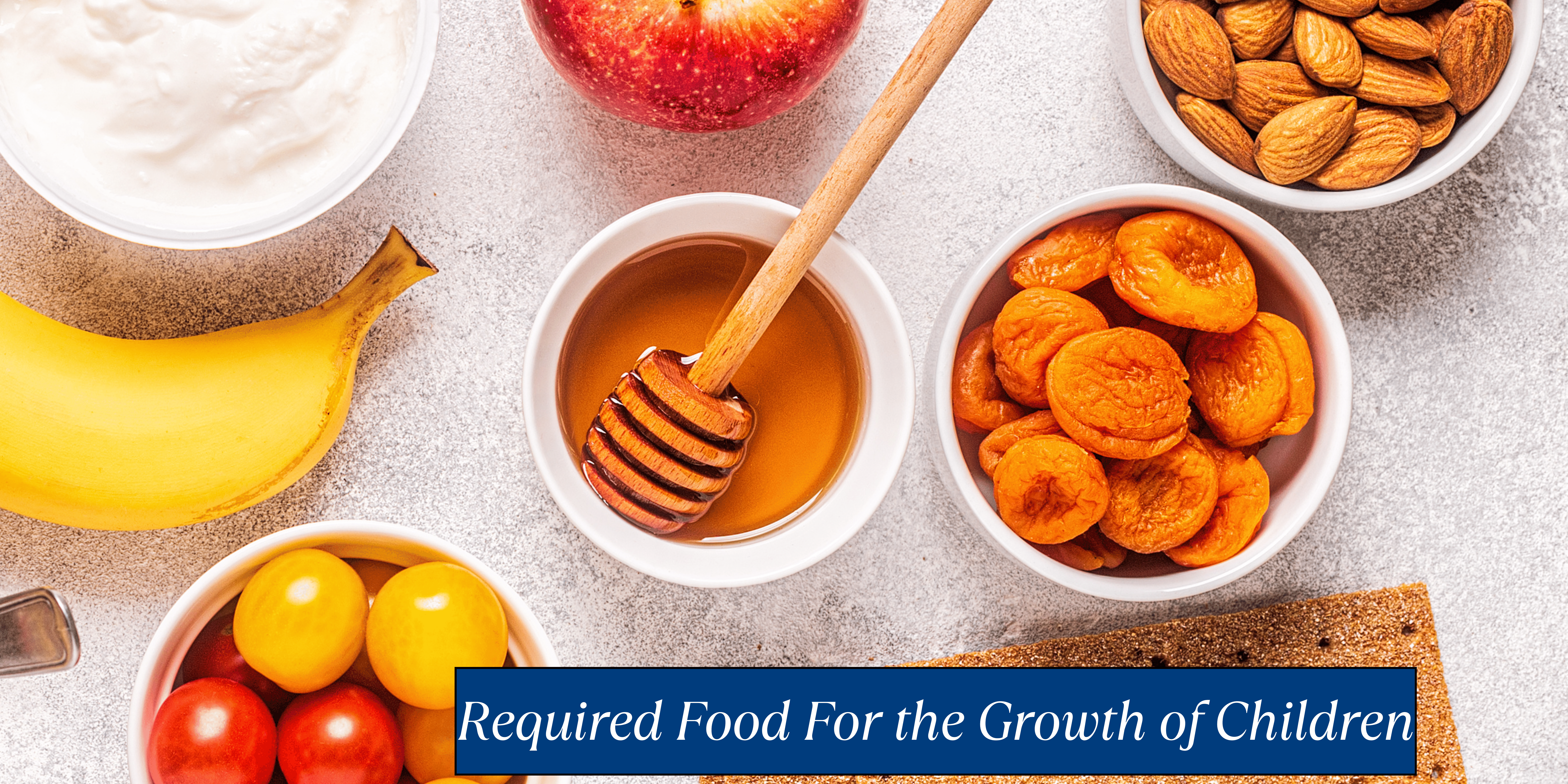Required Food For the Growth of Children
Essential Nutrients for Children's Growth and Development: A Comprehensive Guide
Essential Nutrients for Supporting Children’s Growth and Development
Childhood is a period of rapid growth and development, and providing the right nutrition is crucial to ensure children reach their full potential. A well-balanced diet rich in essential nutrients plays a significant role in supporting their physical, cognitive, and emotional growth. Let’s explore the key nutrients required for the optimal growth of children.

Protein: Building Blocks for Growth
Protein is a fundamental nutrient that serves as the building block for various tissues in the body, including muscles, bones, and organs. It is particularly important during periods of growth. Lean meats, poultry, fish, eggs, dairy products, legumes, nuts, and seeds are all excellent sources of protein. Including a variety of protein-rich foods in a child’s diet can aid in the development of strong muscles and bones.
Calcium: Building Strong Bones and Teeth
Calcium is essential for the development of strong bones and teeth. Children’s bones are still forming, and an adequate intake of calcium is crucial to prevent issues like osteoporosis later in life. Milk, yoghurt, and cheese are great sources of calcium in dairy foods. Leafy greens, fortified plant-based milk alternatives, and calcium-fortified foods can also contribute to fulfilling children’s calcium needs.
Vitamins and Minerals: Supporting Overall Health
Vitamins and minerals play a crucial role in various bodily functions and contribute to overall health and growth. Vitamin D, in particular, is important for calcium absorption and bone health. Exposure to sunlight and consuming foods like fatty fish, fortified dairy, and egg yolks can help maintain adequate vitamin D levels. Vitamin A supports vision and immune function, while vitamin C enhances the immune system and aids in wound healing. Including a variety of colorful fruits and vegetables can provide children with a range of vitamins and minerals.
Iron: Preventing Anemia
Iron is vital for oxygen transport throughout the body. Children require sufficient iron for proper cognitive development and preventing anemia. Good sources of iron include lean meats, poultry, fish, fortified cereals, legumes, and leafy greens. Iron absorption can be improved by eating meals high in vitamin C along with foods high in iron.
Healthy Fats: Brain Development
Healthy fats, particularly omega-3 fatty acids, are essential for brain development and cognitive function. Include sources of healthy fats such as fatty fish (like salmon and trout), avocados, nuts, and seeds in a child’s diet.
Fiber: Digestive Health
Fibre maintains a healthy gut while also assisting with digestion and preventing constipation. Dietary fibre can be found in abundance in whole grains, fruits, vegetables, legumes, nuts, and legume products.
Hydration: Water is Vital
Proper hydration is often overlooked but is crucial for children’s growth and well-being. Encourage children to drink water throughout the day to maintain proper hydration levels.
Balancing Nutrient Intake:
Maintaining a balanced diet with a range of nutrient-rich foods is crucial. While focusing on specific nutrients is crucial, ensuring that children receive a wide range of nutrients from different food groups is key to their overall growth and development.
In conclusion, providing the required nutrients for the growth of children involves offering a diverse range of foods that are rich in protein, calcium, vitamins, minerals, iron, healthy fats, and fiber. By creating a well-rounded and balanced diet, parents and caregivers can contribute to children’s physical, cognitive, and emotional development, setting the stage for a healthy and thriving future. If you have concerns about your child’s nutrition, it’s advisable to consult a pediatrician or a registered dietitian for personalized guidance.




